Welcoming foreign investment, Bangladesh has successfully implemented transformative projects through international Public-Private Partnerships, fostering substantial growth and signaling ambitious progress in development.
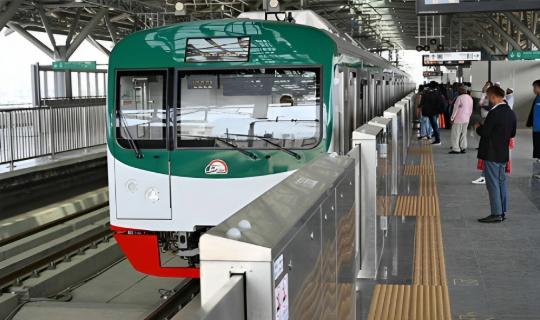
The Dhaka Metro, a groundbreaking initiative in Bangladesh's capital, strives to ease congestion and enhance mobility, aligning with the 20-year Strategic Transport Plan. Line 6's Phase 1 is active, Phase 2 is slated for 2023, and Phase 3, with an extension at Kamalapur railway station, is expected by 2025. Progressing through different construction and planning stages, the network encompasses six lines, primarily funded by public-private partnership with JICA.
Dhaka inaugurated a 19.73-kilometer expressway, connecting Kutub Khali on the Dhaka-Chittagong Highway to the airport area and several other key points across Dhaka. Executed through a public-private partnership, the project, costing USD 812 million, saw 51% financed by the Italian-Thai Development Company and the remainder by the Bangladeshi government, China Shandong International and Sinohydro Corporation. Managed by the Bangladesh Bridge Authority, the expressway, features 31 ramps and is set for future expansions.
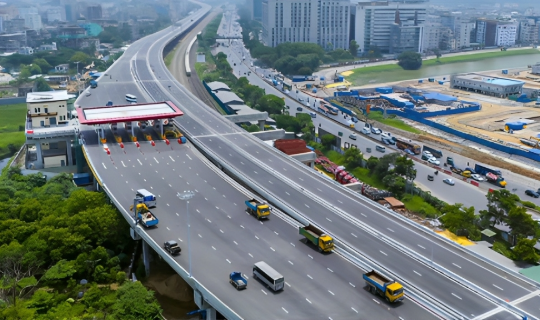
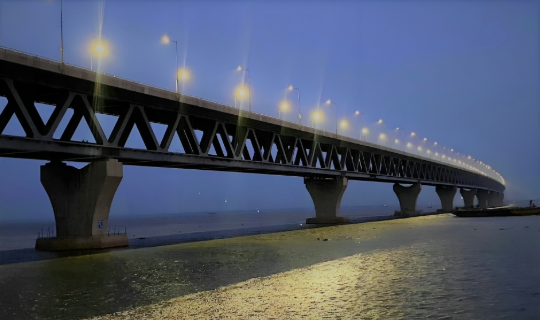
The Padma Multi-purpose Bridge recently inaugurated its upper road section in June 2022. The lower section, designated for railway connectivity, is currently under construction. This mega-project, with a budget exceeding U$ 3.55 Bn, aims to establish a new rail network in the southern part of the country. Implemented through a G2G model, the 172 km railway is set to significantly enhance connectivity in Bangladesh, fostering economic development and improving transportation efficiency.
The Matarbari Deep Sea Port, a prominent ongoing mega project in Bangladesh, initially designed for coal import, has evolved into a dynamic commercial port. Boasting an 18-meter depth, it promises to significantly cut import/export costs, streamlining trade. Commencing in 2020, now with a revised budget of USD 802 mn, about 70% of which comes from the Japan International Cooperation Agency (JICA) and the remainder is covered by the Government of Bangladesh. The anticipated completion date is December 2026.
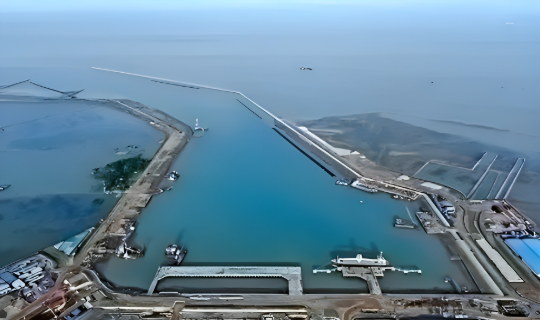
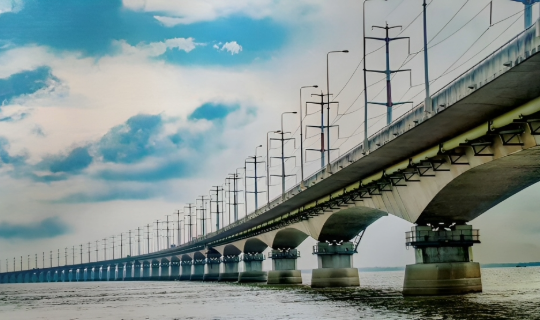
The Bangabandhu Sheikh Mujib Railway Bridge, the country's largest, enhances rail connectivity by constructing a new parallel bridge north of the existing one in Tangail and Sirajganj districts. The project involves laying a 30.73km railway line, estimated at U$ 1.53 Bn the project is set for completion by August 2024. The initiative aims to establish a safer and more efficient inter-Asian communication corridor, marking a significant advancement in regional transportation infrastructure.
Dhaka's Shahjalal International Airport is constructing a cutting edge terminal with a 37-aircraft capacity and 230,000 square meters. Set to serve 12 million passengers, the additional terminal increases the airport's annual handling capacity from 8 million to 20 million. Japanese corporation Shimizu and Korean giant Samsung are collaborating on this project, backed by a substantial investment from JICA.
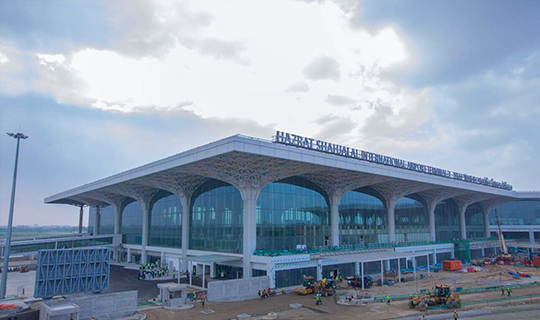
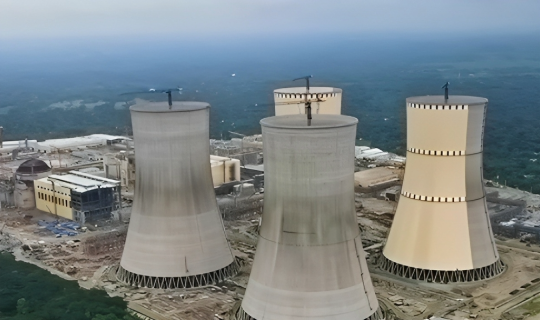
Bangladesh became the 33rd country globally to harness nuclear energy for electricity production. This significant milestone is part of the country's largest-ever mega-project, the Ruppur Nuclear Power Plant, with an estimated budget of approximately U$13 Bn (U$ 12.65 Bn). The project involves the construction of two units in two phases, boasting a combined power generation capacity of 2400 MW. The Ruppur Nuclear Power Plant is poised to serve as a cost-effective and reliable source of power.
The Matarbari Coal Power Plant, located in Maheshkhali Upazila of Chittagong, comprises two units with a combined generation capacity of 1200 MW, effectively meeting the power demands of the Chittagong and Cox’s Bazar regions. This facility will play a crucial role in the power requirements of Special Economic Zones and E.P.Z.s in Chittagong and Cox’s Bazar. The project is co-financed by the Coal Power Generation Company Bangladesh Limited (CPGCBL), Japan International Co-operation Agency (JICA), and the Government of Bangladesh.
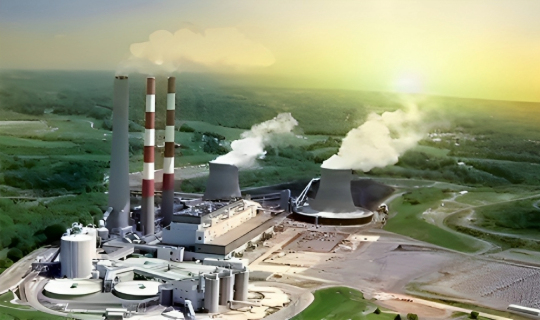
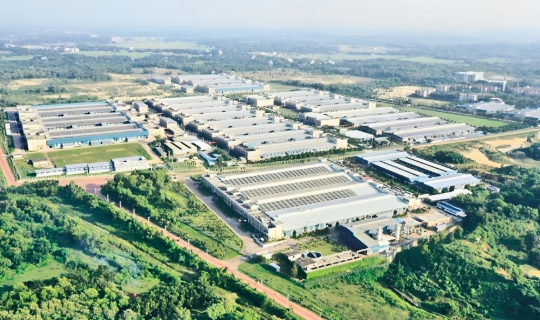
BEPZA oversees eight operational EPZs, with plans for a ninth. The government aims to establish 100 new EPZs and SEZs in15 years; currently, over 30 are under construction, and others are in the approval phase. Araihajar hosts an SEZ, a collaboration between Sumitomo Corp (70%), BEZA (30%), and 15% JICA funding, targeting 100 companies with a USD 1 billion investment. Discussions involve potential SEZs near Chittagong with Chinese support and at the West Bengal border with an Indian developer.
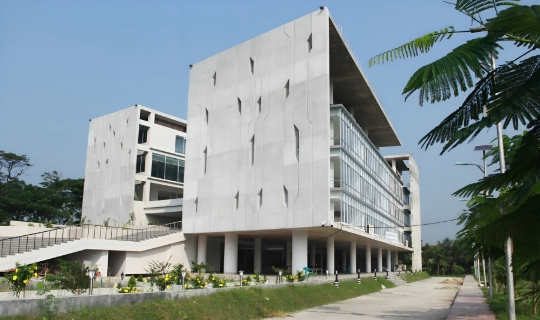
The Bangladesh Hi-Tech Park Authority is actively fostering an investment-friendly environment and driving employment growth in high-tech industries. As part of this strategic initiative, the country has established 28 Hi-Tech Parks, Software Technology Parks, and IT Training and Incubation Centers, with 5 currently operational. Looking ahead, the prospects for Hi-Tech parks in Bangladesh are promising. The government is dedicated to fostering tech businesses, offering tax incentives, and creating investment opportunities.
Bangladesh Smart Map
Uncovering Potential Investment Locations